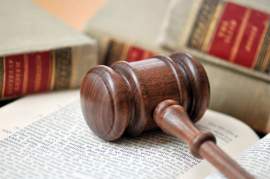
Immunities Vicarious Liability

Imputed negligence
Though one may be curious as to how exactly justice is served when the individual who committed the act is not directly pursued, there does exact adequate reasoning to support vicarious liability as a form of imputed negligence. We will use the previously mentioned situation involving the employer's absorption of the repercussions following their employee's misguided actions. In such a case, the employment of vicarious liability is instituted as a way to ensure that the party genuinely responsible is held accountable or answerable.
With the assumption that the employee is abiding by "company standards," for instance, there will be no other way to ensure that the harm stemming from such practices be put to a halt, except to pursue the originator of such policies. The hope is that prevention of future incidents will be achieved by these means. As we've already dealt with these instances of parental and employer liability as falling under this category of imputed negligence, we will move to "principals' liability."
Under this rubric, the owner of a vehicle will be made liable by any accident that has occurred as a result of that specific machine, regardless of whether or not they were behind the wheel at the time. Therefore, the loaning of automobiles much be done with discretion. Despite this fact however, vicarious liability for the owners of planes has been slow in equal pursuance of such a consequence.
Despite vicarious liability as a form of imputed negligence seeming to put the employer in a tight spot more often than not, there does exist one route that they may choose to go following such a suit against them due to the claim against their employee. This avenue would be that of "employers' indemnity." Following the claim settled against them, the employer may then go ahead and take the option of suing their employee to reacquire the damages they lost in the suit.
This would probably do well to satisfy the criticisms that arise from a debate of vicarious liability, one of which being the belief that it exists as a true adversary to the "legal standard of natural justice." It appears that there will not be a general consensus as to the continuance of such a practice in liability



















